Related Research Articles
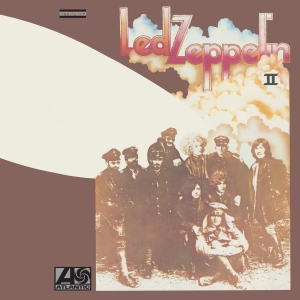
Led Zeppelin II is the second studio album by the English rock band Led Zeppelin, released on 22 October 1969 in the United States and on 31 October 1969 in the United Kingdom by Atlantic Records. Recording sessions for the album took place at several locations in both the United Kingdom and North America from January to August 1969. The album's production was credited to the band's lead guitarist and songwriter Jimmy Page, and it was also Led Zeppelin's first album on which Eddie Kramer served as engineer.

Let It Be is the twelfth and final studio album by the English rock band the Beatles. It was released on 8 May 1970, almost a month after the group's public break-up, in tandem with the documentary of the same name. Concerned about recent friction within the band, Paul McCartney had conceived the project as an attempt to reinvigorate the group by returning to simpler rock 'n' roll configurations. Its rehearsals started at Twickenham Film Studios on 2 January 1969 as part of a planned television documentary showing the Beatles' return to live performance.
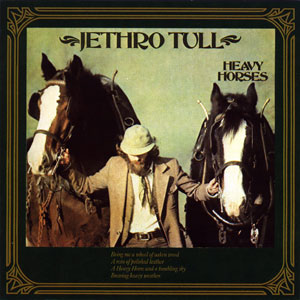
Heavy Horses is the eleventh studio album by British progressive rock band Jethro Tull, released on 10 April 1978.

Live at Leeds is the first live album by English rock band the Who. It was recorded at the University of Leeds Refectory on 14 February 1970, and is their only live album that was released while the group were still actively recording and performing with their best-known line-up of Roger Daltrey, Pete Townshend, John Entwistle and Keith Moon.
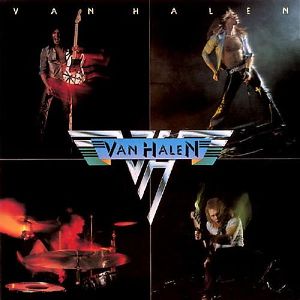
Van Halen is the debut studio album by American rock band Van Halen, released on February 10, 1978, by Warner Bros. Records. Widely regarded as one of the greatest debut albums in rock music, the album was a major commercial success, peaking at number 19 on the Billboard 200. It has sold more than 10 million copies in the United States, receiving a Diamond certification from the Recording Industry Association of America (RIAA) and making it one of the best-selling albums in the country.
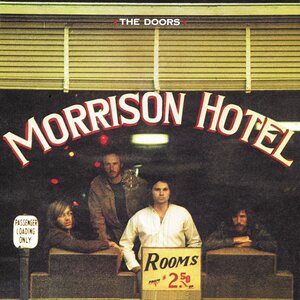
Morrison Hotel is the fifth studio album by American rock band the Doors, released on February 9, 1970, by Elektra Records. After the use of brass and string arrangements recommended by producer Paul A. Rothchild on their previous album, The Soft Parade (1969), the Doors returned to their blues rock style and this album was largely seen as a return to form for the band. The group entered Elektra Sound Recorders in Los Angeles in November 1969 to record the album which is divided into two separately titled sides, namely: "Hard Rock Café" and "Morrison Hotel". Blues rock guitar pioneer Lonnie Mack and Ray Neapolitan also contributed to the album as session bassists.

The Man-Machine is the seventh studio album by German electronic music band Kraftwerk. It was released on May 1978 by Kling Klang in Germany and by Capitol Records elsewhere. A further refinement of their mechanical style, the album saw the group incorporate more danceable rhythms. The album has a satirical bent to it. It is thought to address a wide-range of themes from the Cold War, Germany's fascination with manufacturing, and humankind's increasingly symbiotic relationship with machines. It includes the singles "The Model" and "The Robots".

Abbey Road is the eleventh studio album by the English rock band the Beatles, released on 26 September 1969. It is the last album the group recorded, although Let It Be was the last album completed before the band's break-up in April 1970. It was mostly recorded in April, July, and August 1969, and topped the record charts in both the United States and the United Kingdom. A double A-side single from the album, "Something" / "Come Together", was released in October, which also topped the charts in the US.
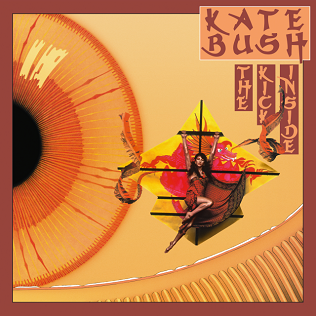
The Kick Inside is the debut studio album by English singer-songwriter Kate Bush. Released on 17 February 1978 by EMI Records, it includes her UK No. 1 hit, "Wuthering Heights". The album peaked at No. 3 on the UK Albums Chart and has been certified Platinum by the British Phonographic Industry (BPI). The production included efforts by several progressive rock veterans, including Duncan Mackay, Ian Bairnson, David Paton, Andrew Powell, and Stuart Elliott of the Alan Parsons Project, and David Gilmour of Pink Floyd.

"Whole Lotta Love" is a song by the English rock band Led Zeppelin. It is the opening track on the band's second album, Led Zeppelin II, and was released as a single in 1969 in several countries; as with other Led Zeppelin songs, no single was released in the United Kingdom. In the United States, it became their first hit and was certified gold. Parts of the song's lyrics were adapted from Willie Dixon's "You Need Love", recorded by Muddy Waters in 1962; originally uncredited to Dixon, a lawsuit in 1985 was settled with a payment to Dixon and credit on subsequent releases.

Wild Cherry was an American funk rock band formed in Mingo Junction, Ohio, in 1970 that was best known for its song "Play That Funky Music".

Live Rust is a live album by Neil Young and Crazy Horse, recorded during their fall 1978 Rust Never Sleeps tour.

Plastic Letters is the second studio album by American rock band Blondie, released in February 1978 by Chrysalis Records. An earlier version with a rearranged track listing was released in Japan in late December 1977.

"Wuthering Heights" is a song by English singer Kate Bush, released as her debut single on 20 January 1978 through EMI Records. Inspired by the 1847 Emily Brontë novel of the same name, the song was released as the lead single from Bush's debut studio album, The Kick Inside (1978). It peaked at number one on the UK Singles Chart for four weeks, making Bush the first female artist to achieve a number-one single with an entirely self-penned song. It also reached the top of the charts in Australia, Ireland, Italy, New Zealand, and Portugal.
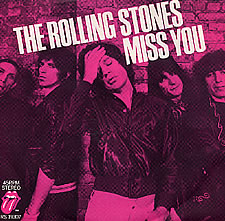
"Miss You" is a song by the English rock band the Rolling Stones, released on Rolling Stones Records in May 1978. It was released as the first single one month in advance of their album Some Girls. "Miss You" was written by Mick Jagger and Keith Richards.

"Da Ya Think I'm Sexy?", also written "Da' Ya' Think I'm Sexy", is a song by British singer Rod Stewart from his ninth studio album, Blondes Have More Fun (1978). It was written by Stewart, Carmine Appice, and Duane Hitchings, though it incorporates the melody from the song "Taj Mahal" by Jorge Ben Jor and the string arrangement from the song "(If You Want My Love) Put Something Down On It" by Bobby Womack.
Christopher Cerf is an American author, composer-lyricist, voice actor, and record and television producer. He has contributed music to Sesame Street, and co-created and co-produced the PBS literacy education television program Between the Lions.

"Sweet Talkin' Woman" is a 1978 single by Electric Light Orchestra (ELO) from the album Out of the Blue (1977). Its original title was "Dead End Street", but it was changed during recording. Some words that survived from that version can be heard in the opening of the third verse, "I've been livin' on a dead end street".

"Disco Inferno" is a song by American disco band the Trammps from their 1976 fourth studio album of the same name. With two other cuts by the group, it reached No. 1 on the US Billboard Dance Club Songs chart in early 1977, but had limited mainstream success until 1978, after being included on the soundtrack to the 1977 film Saturday Night Fever, when a re-release hit number eleven on the Billboard Hot 100 chart.
References
- 1 2 3 "Phonograph Record articles, interviews and reviews". Rock's Backpages . Retrieved October 5, 2014.
- 1 2 3 Raup, Avo (November 2014). "Phonograph Record Magazine". afka.net. Archived from the original on October 2, 2009. Retrieved May 28, 2015.